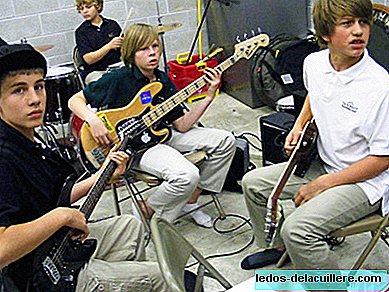
The other day I briefly explained the achievement of the Federation of Musical Societies of the Valencian Community, by getting music education to be considered with the LOMCE, an autonomous core subject, despite having been relegated elsewhere.
Reviewing the documentation provided by the FSMCV (many and varied given the number of years they carry out projects to promote this subject in schools), I found a very curious study published in the Journal of Neuroscience. The author of the study is a neurobiologist who works at Northwestern University (has several campuses in the United States). Nina Kraus has observed with her collaborators 44 healthy adults who were between 55 and 76 years old at the time of the investigation.
By measuring the electrical activity in the region of the brain that processes the sound, they have found differences among those who had had musical training during their childhood, and the rest. Basically all those who had obtained musical education from four to 14 years during their childhood and youth, had faster responses to the sounds of language, than those who had not had any training.
There seems to be better neuronal synchronization, so it is thought that early music training sets the stage for better later interactions with sounds
None of those who had studied music had continued playing instruments later, although it seems that benefits were still appreciated.
Sometimes parents would like our children to study music: we have read and heard that it is very good for their training (academic and as people). But now Dr. Kraus explains that by encouraging them in this regard we also help lay some foundation of healthy aging.












